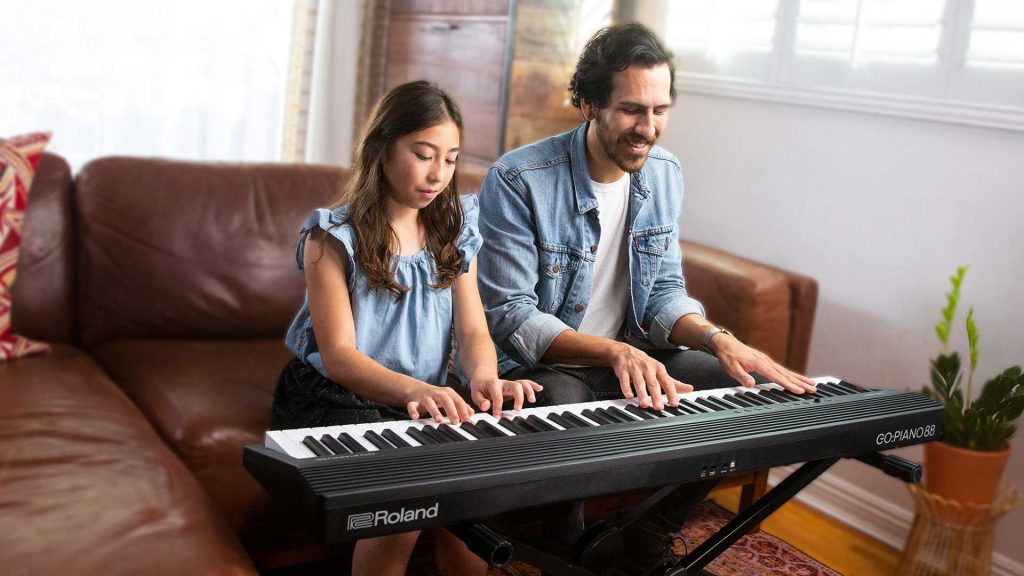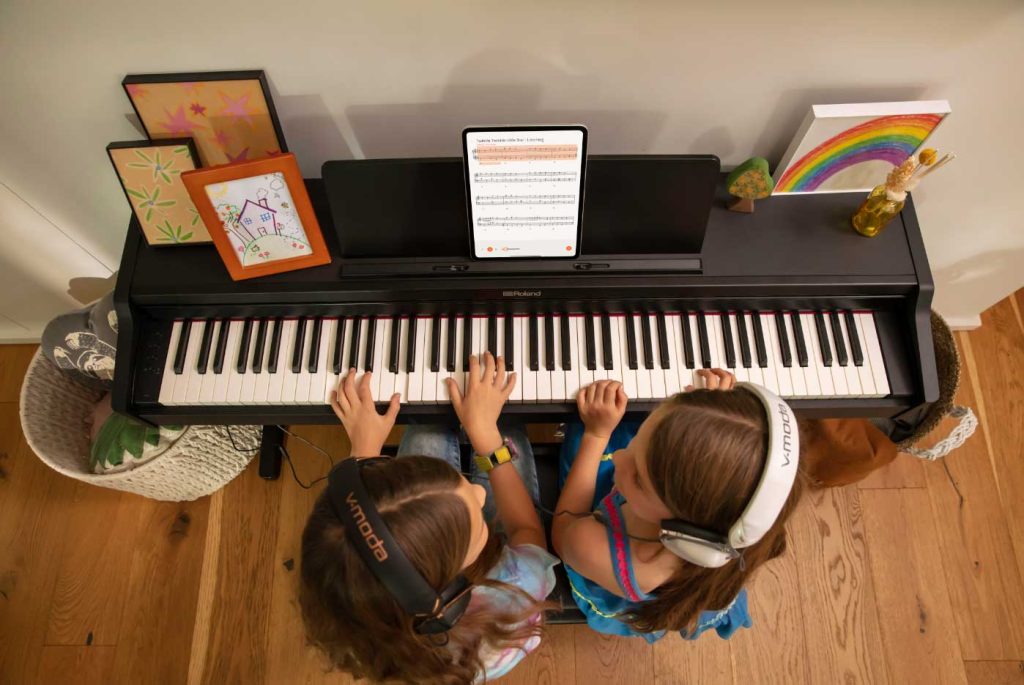Even the most enthusiastic young musicians can lose motivation when comes to practicing the piano. Encouraging a child to embrace the piano can feel like conducting a delicate symphony.
Fear not! In this guide, we’ll explore strategic approaches to turn those piano sessions from a challenge into a delightful melody, nurturing a profound and enduring love for music.
Find The Right Teacher
If your child is dreading piano practice, perhaps their teacher isn’t the right match for them. Selecting an instructor who understands your child’s personality, learning style, and musical preferences is pivotal. The teacher-student relationship significantly impacts their enthusiasm for practice.
For advice on finding the right teacher, check out “How To Find the Right Piano Teacher: An Open Letter to Parents.”

Praise Their Effort Rather Than Their Talent
It’s a common misconception that musicians are simply talented—when the truth is that talent comes from several hours of practice. Children may become discouraged if they believe that they need natural talent to become good at the piano when the key is actually practice.
Praising their dedication and hard work reinforces the idea that improvement comes with persistence. This approach builds resilience and a positive attitude towards challenges.
Set Realistic Goals
Learning the piano might seem like a big challenge, but guess what? Breaking down those big goals into smaller, doable steps can make it less daunting for your child. For example, learning a song can be broken down into mastering small sections or focusing on specific musical elements. Turning challenges into games is also a great way to make your child’s goals more achievable and fun.
This approach not only simplifies the learning process but also makes it more manageable and enjoyable for your budding pianist.

Incorporate Technology and Learning Apps
it’s no secret that this generation of children is essentially born with a love for all things digital. Introducing piano learning apps adds a contemporary twist to their musical journey. These interactive tools not only make learning engaging but also align seamlessly with your child’s tech-savvy nature.
Additionally, purchasing a digital piano opens up a world of possibilities. A digital piano gives your child access to a variety of sounds, interactive features, and recording functions. The added bonus of headphones ensures they can practice quietly whenever they want. These pianos also work seamlessly with learning apps, making the entire learning experience comprehensive and enjoyable.
Ask Reflective/Open-Ended Questions
Demonstrate curiosity about their musical journey by showing genuine interest in the pieces they’re practicing. Ask open-ended questions that encourage them to share their thoughts and feelings about the music.
Instead of asking, “Did you have fun?” after their lesson, inquire about what they learned and what they enjoyed the most. This approach not only deepens your connection but also opens up a meaningful dialogue about their evolving musical experiences.
Streamline Their Schedule
One reason why your child may not want to practice is that they feel overwhelmed. Between school, sports, and other activities, they may be too tired to give the piano a real shot. Recognize the importance of flexibility in their practice routine. Allow your child to have some control over when and how long they practice. Additionally, consider minimizing after-school activities to create a balanced schedule that allows for focused piano practice.

Inspire Your Child Through Your Love for Music
Children naturally look up to their parents as guides, and your passion for music can be a powerful inspiration. By openly sharing your genuine interest in music and demonstrating the sheer joy of playing an instrument, you instill a sense of excitement in your child. As they witness your enthusiasm, they begin to see piano practice not as a chore but as a positive and enjoyable activity.
Embracing a child’s piano practice journey involves finding the right teacher, celebrating effort, crafting a flexible routine, setting realistic goals, mirroring enthusiasm, incorporating tech-savvy tools, and expressing genuine interest. With these harmonious strategies, piano practice transforms into a positive, enriching experience, nurturing your child’s love for music in the grand symphony of family life.
